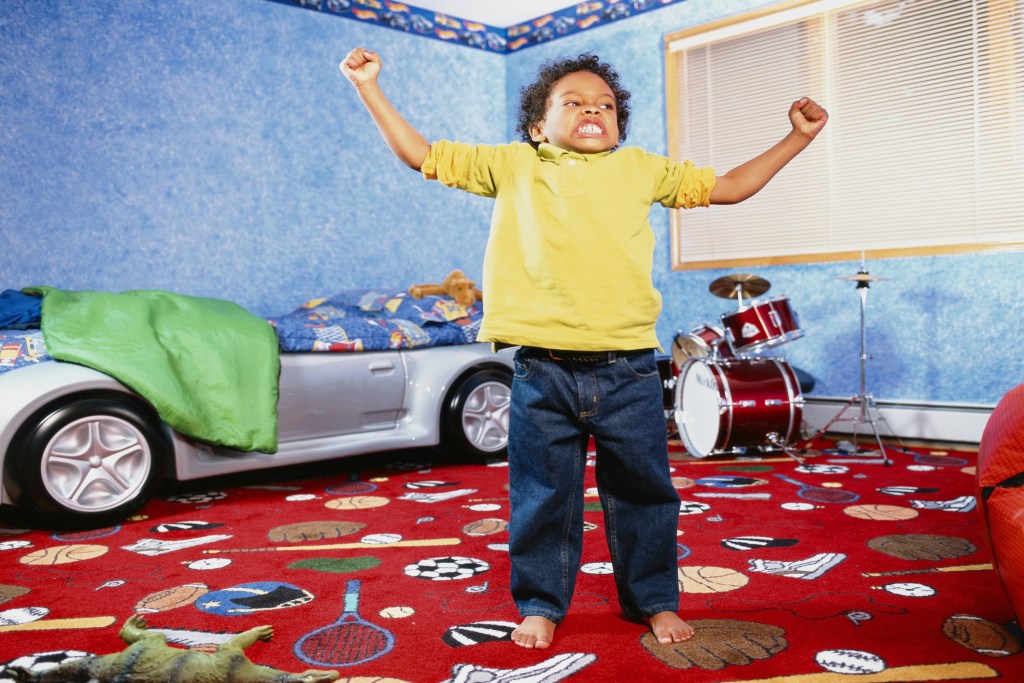It can be a bit of a shock to parents when their once calm and mild-mannered child suddenly begins to act out. Constantly acting in defiance of their parents or other authority figures, exhibiting physical aggression such as biting or hitting, or simply throwing epic temper tantrums are just three common child behavior problems you may be dealing with.
Although sometimes this behavior can be indicative of more serious behavioral disorders, oftentimes these are simply growing pains that many parents experience as their child grows and learns about boundaries and acceptable behavior. This may be normal behavior but there are ways parents can work with their children to ensure these phases are short-lived.

What are common child behavioral problems?
There are several different ways that your child may start acting out, but three of the most common child behavioral problems are defiance, physical aggression, and temper tantrums. As Child Mind Institute notes, children can experience big emotions that can often result in big reactions. They don’t always have the tools to deal with their feelings of frustration, anger, anxiety, or even excitement, and, as a result, they often act out in ways that aren’t acceptable.
Defiance
There are several defiant disorders, including oppositional defiant disorder and attention deficit hyperactivity disorder, but experts warn that labeling a child with a disorder before the age of 5 should be avoided. In reality, defiance is one of the most common behavioral problems in children of all ages. If you’re frustrated with your child who has made a habit out of telling you “no!” or who simply ignores the requests of authority figures, Very Well Family suggests clearly setting expectations and ensuring that any requests are age-appropriate. Defiant behavior is often the result of a different issue, so trying to determine if something else is bothering your child may help you understand why they’re being so defiant. They also suggest trying to avoid situations where you know your child may be prone to defiance. If your child tends to get frustrated when late, try not to ask them to do something important if they’re running behind. This will help set your child up for a positive outcome instead of possibly adding to any feelings of anxiety.
Physical aggression
Physical aggression, another common behavioral issue, is often exhibited in the form of biting or hitting for younger children or throwing items and slamming doors for older children. While adults are more equipped to deal with their anger and frustrations and can channel their emotions in non-aggressive ways, kids don’t always have the tools or self-discipline to do so. If you have a child who tends to act out physically when dealing with anger or anxiety, there are ways you can help them control their behavior while reinforcing that physical aggression is not acceptable.
“We generally expect toddlers to experience some aggressive behaviors,” pediatric psychologist Emily Mudd, Ph.D. explained to the Cleveland Clinic. “At this stage, kids tend to resort to physical expressions of their frustration, simply because they don’t yet have the language skills to express themselves. For example, pushing a peer on the playground could be considered typical. We wouldn’t necessarily call that aggression unless it was part of a pattern.”
Parents suggest letting your child know what behavior is not acceptable and if that there will be consequences if they participate in that behavior. It’s important to be consistent with those consequences. Encouraging your child to speak about what is making them angry can also help them learn to express their emotions through words and not aggression. It’s also important that parents model good behavior and don’t exhibit aggressive behavior themselves as children often mimic what they see their parents or other adults do. Reassuring your child that they’re allowed to feel frustrated, angry, or upset is important while teaching them healthy ways to channel their emotions.

Temper tantrums
While temper tantrums can be exhausting for both the child and parents, they are a very normal and natural part of childhood. Younger children will often have a temper tantrum when they feel things are out of their control or they simply don’t have the verbal skills to express how they’re feeling. Nemours writes that parents may need to approach their child’s tantrum differently depending on what the trigger of the tantrum is. If they’re acting out because they’re hungry or tired, it may be time for a snack or a nap, whereas other times it’s best to simply ignore the behavior, especially if your child is upset after being denied something they wanted. If your child is being defiant and refusing to do something they’ve been asked to do, ignore the tantrum but make sure they complete the assigned task once the tantrum is done.
Tantrums are learned behavior, which means that children often learn that this behavior works when they get the outcome they desire. It’s important for parents to set strict rules and follow them so the child understands that they aren’t going to get their way simply because they have a temper tantrum. It’s important not to give in to temper tantrums as that will just encourage the behavior.
Every parent has dealt with behavioral issues when it comes to raising their kids, but fortunately, most of these are phases that kids will grow out of. If you’re concerned that your child’s behavioral issues are part of a deeper problem and they aren’t getting better, it’s best to speak to your pediatrician for professional advice.



